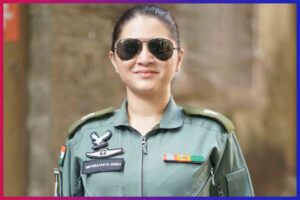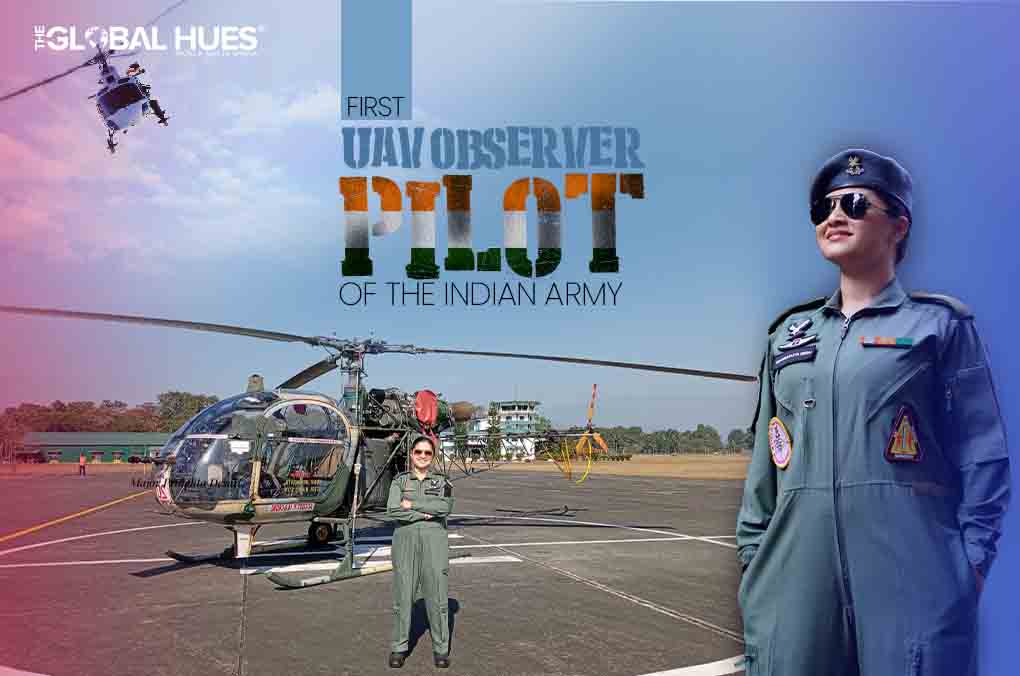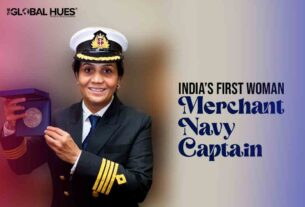The seed of Major Prajakta Desai’s dream to become an army officer was sown at the tender age of eight. At a time when childhood aspirations often change, little Prajakta saw the first scene of the movie Border in 1995 and decided to serve the nation one day. In the 1980s, it wasn’t common for women to go out and work, venture into male-dominated careers, and break societal norms. However, the parents of Major Prajakta Desai were progressive and always supported and encouraged her.
She was fortunate that her parents didn’t treat her differently despite the prevalent gender discrimination during the eighties and nineties. When she expressed her desire to join the army to them, they wholeheartedly supported her. Guided by her mother’s NCC experience, she decided to join the NCC herself. Being part of a group with similar dreams of joining the army played a crucial role in boosting her determination and helping her overcome the challenges of training.
Major Prajakta served in the Indian Army from 2010 to 2021. She is the first UAV Observer Pilot of the Indian Army and is also a motivational speaker, mountaineer, skydiver, hot air balloonist, and an inspiration for thousands of young defence aspirants. In a candid conversation with The Global Hues, Major Prajakta Desai shares insights about her journey, multifaceted achievements, and the impactful moments that shaped her career and life.
You have served in the army for 11 years. There would have been many proud moments. Share the moments that stay with you even today.
There are two important anecdotes of every army officer’s life. One is when you aspire to join the armed forces or any other force. Amidst intense competition with lakhs of students taking the exam, interviews, medical evaluations, and stringent merit criteria, only a mere 0.1 per cent manage to get selected.
As a young aspirant in my twenties, the moment of being chosen as an army officer gave me a high. Yet, when I joined the academy, it was an entirely different ball game. Whether you are good at sports, debates, or studies, the training academy is a different world. In the academy, 18 out of 24 hours, you are under mental and physical pressure. You follow a strict exercise regime and are tested physically and mentally.
There comes a phase when you start questioning yourself whether you have made the right decision or not and whether you will be able to survive. Yet, after a year of intense training, finally donning the olive green, parents pinning the badges on your uniform, taking the oath to protect the motherland as an officer with the prefix ‘Lieutenant’ makes it the most cherished moment of an officer’s life.
The second anecdote unfolds post-army life. The jawans I have commanded call me and ask, “Sahab, Kaise ho.” Some seek my help when they face challenges. When they say that things would have been different if I were still there, it means a lot as it shows that the lessons and guidance I provided as a leader are still valued, and my absence has created a void. This, for me, is the most significant achievement as an officer.
How important was your father and family’s support in your journey to join the army?
My father took me to watch the movie ‘Border’ in 1995. I was only eight years old. From the movie’s first scene, I was beyond intrigued seeing all the fighting and the artillery firing. The first that came to mind was, ‘Why am I not a man?’ As an eight-year-old child, it was a simple statement but very impactful because, as a child, I believed that only men could go into such fields. Little did I know women have been in the army since 1992 and served in services other than medical.
When I told my parents that I wanted to join the army when I grew up, they didn’t mock me. They encouraged me, and I am grateful that, in those early stages, my parents nurtured rather than crushed my dream of becoming an army officer.
In your 11 years in the army, what changes have you observed, and what still needs to be done?
In 1992, other than medical, women were allowed in the Army Service Corps (ASC), Electronics and Mechanical Engineers (EME), Army Ordnance Corps (AOC), Military Intelligence (INT), etc to provide support in logistics, vehicles, and ammunition in the case of war.
In 1994 and 1995, women were allowed in Air defence. In 2009, they were allowed into Army Aviation as Air Traffic Controllers. In 2020, women became UAV pilots, illustrating a progression from service roles to those supporting combat. Earlier, women didn’t have a permanent commission. They could only serve for 10 to 14 years. However, in 2020, cases were filed, enabling women officers to seek permanent commissions. The National Defence Academy (NDA), previously exclusive to men, began admitting girls after completing their 12th grade.

Finally, in 2023, women came into the artillery. Furthermore, 14 to 16-year-old girls are allowed in Sainik Schools, and I believe ten years down the line, they will be in the fighting force. This evolution has been gradual and the reason for that is societal acceptance of women’s equal capabilities alongside men.
Message From Prajakta Desai
Be a citizen worth fighting for and take pride in your nation.
Read More Stories:
- Alaknanda Das: The Kathak Genius Who Danced Through Cancer
- Deepa Malik: A Woman With Limitless Spirits
- Aruna Desai: Embracing Motherhood Like No Other
- Ekta Viiveck Verma: The Catalyst For Change In Gender-Based Violence
- Deepika Mhatre: The House-Maid Turned Comedian




